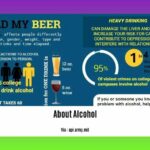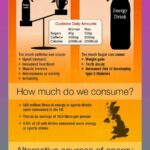Boating and alcohol may seem like a relaxing combination, but the reality is far from tranquil. Alcohol’s effects on the water are magnified, posing significant dangers to both boat operators and passengers. This article explores the hidden risks of mixing alcohol and boating, providing crucial information to help keep you and your loved ones safe.
The Perils of Mixing Alcohol and Boating
Enjoying a few drinks on the water might seem harmless, but alcohol’s effects can be significantly more dangerous on a boat than on land. This isn’t just about the captain; everyone onboard is at greater risk when alcohol is involved.
Impaired Judgment and Risky Behavior
Alcohol clouds judgment, making it difficult to assess situations accurately. A minor wave can appear larger, a safe distance smaller. This impaired judgment can lead to risky maneuvers, ignoring safety regulations, and neglecting to react appropriately to changing weather conditions. Operating a boat while intoxicated is illegal in all 50 U.S. states, with penalties mirroring those of drunk driving. Click here to learn more about delivering breaths with a bag mask device, a crucial skill in emergency situations.
Diminished Coordination and Balance
Even slight intoxication can hinder coordination and balance—essential skills for operating a boat, especially in rough waters. Alcohol makes it harder to control the vessel, increasing the chances of collisions, running aground, or capsizing. For passengers, impaired balance dramatically increases the risk of falling overboard.
Slowed Reaction Time and Emergencies
Alcohol slows reaction time, impeding the ability to respond quickly to sudden changes or emergencies. A delayed response can be the difference between a near miss and a disaster. In a crisis, clear thinking and rapid reactions are vital, yet alcohol hinders both, turning minor incidents into tragedies.
Passengers: Hidden Risks
Passengers, even if sober, are not immune to the dangers of alcohol onboard. Intoxicated passengers can distract the operator, create chaotic situations, and are more prone to falls overboard. Their impaired judgment and coordination put themselves and everyone on the boat at risk.
The Science Behind the Danger
Alcohol’s primary target is the central nervous system, slowing down vital functions. It impairs:
- Reasoning and Judgment: Decision-making becomes compromised, leading to unsafe choices.
- Coordination and Balance: Maintaining stability and controlling movements becomes difficult, increasing the risk of accidents and falls.
- Reaction Time: Responses to changing conditions or emergencies are delayed, hindering effective action.
The marine environment amplifies these effects. Sun, glare, wind, and the constant motion of the boat intensify alcohol’s impact, leading to more rapid impairment. Some experts believe that the rocking motion can even induce a “boater’s hypnosis,” further exacerbating the effects.
Legal Ramifications: BUI
Boating Under the Influence (BUI) carries severe legal consequences, much like driving under the influence (DUI). Penalties include:
- Hefty fines
- Suspension or revocation of boating license
- Jail time
- Mandatory alcohol education or treatment programs
These penalties vary by state, but the message is clear: operating a boat under the influence is illegal and dangerous.
Staying Safe: Practical Tips
- Designate a Sober Skipper: Just as with driving, designate someone to remain completely sober and operate the boat.
- Limit Alcohol Intake: If you choose to drink, do so in moderation and stay hydrated.
- Be Aware of Environmental Factors: Recognize that sun, wind, and boat motion can intensify alcohol’s effects.
- Wear Life Jackets: Ensure all passengers wear life jackets, especially if alcohol is consumed.
- Know the Law: Familiarize yourself with BUI laws in your area, as they can vary.
The Ripple Effect: Beyond the Boat
The consequences of BUI extend beyond the immediate situation. Accidents can result in serious injuries or fatalities, impacting families and communities. The emotional, physical, and financial repercussions can be devastating.
Ongoing Research and Evolving Knowledge
While much is known about the dangers of alcohol and boating, research continues to explore the complexities of this issue. Studies are investigating the specific interactions between alcohol and the marine environment, as well as the long-term effects of BUI. As our understanding evolves, so too should our commitment to safe boating practices.
By understanding the risks and making responsible choices, we can ensure that boating remains a safe and enjoyable experience for everyone. Don’t let alcohol’s deceptive grip ruin your time on the water. Choose safety, choose sobriety, and protect yourself and your passengers.
- Unlock Elemental 2 Secrets: Actionable Insights Now - April 2, 2025
- Lot’s Wife’s Name: Unveiling the Mystery of Sodom’s Fall - April 2, 2025
- Photocell Sensors: A Complete Guide for Selection and Implementation - April 2, 2025
















